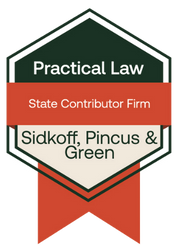Philadelphia Employment Lawyers: Superior Court Enforces Contingency Fee Arrangement Written in an E-mail

The Pennsylvania Superior Court affirmed an Allegheny County Court decision that awarded $40,000 to a personal injury firm in Pittsburgh. Flaherty Fardo, LLC v. Keiser, No. 1260 WDA 2015 (Pa. Super. Ct., Aug. 8, 2016).
The dispute was between the firm, Flaherty Fardo, and one of its clients, Thomas Keiser. Keiser claimed that a contingency fee arrangement written in an e-mail was unenforceable, because it was not a “signed writing to reflect the terms of the parties’ agreement,” and relied on the Pennsylvania Rule of Professional Conduct 1.5(c) to solidify his argument.
Keiser hired Flaherty Fardo to defend him in a lawsuit against Citigroup, his former employer. Part of Keiser’s compensation package when he was hired included an employee forgivable loan of approximately $1.5 million under a nine-year arrangement. When Keiser left the company after only three years, Citigroup sued to recover the remaining $1.03 million, plus interest and attorneys’ fees of about $400,000.
The contingency fee arrangement e-mail contained a $32,000 flat fee up front, and an additional ten percent of any savings realized by the firm from the total amount Citigroup was asking. Following arbitration, Citigroup was awarded the entire remaining loan amount, but no interest or attorneys’ fees. Flaherty Fardo then sent Keiser an invoice for $40,000, believing it had saved Keiser $400,000. After Keiser fired the firm and refused to pay, the firm filed a complaint against him.
The Superior Court, relying on precedent, found that the Pennsylvania Rules of Professional Conduct do not have the effect of substantive law, but are instead only used in disciplinary proceedings. Furthermore, even if those rules did have legal effect, the Court found that the arrangement would have been enforceable, because it was in writing. Furthermore, even though the arrangement was not signed and does not comply with the statute of frauds, the Superior Court stated there is no prior case law that states contingency fee agreements have to comply strictly with the statute of frauds. Therefore, the ruling was affirmed and Flaherty Fardo was awarded the nearly $40,000.
For more information, call Philadelphia employment lawyers at Sidkoff, Pincus & Green at 215-574-0600 or contact us online.



















